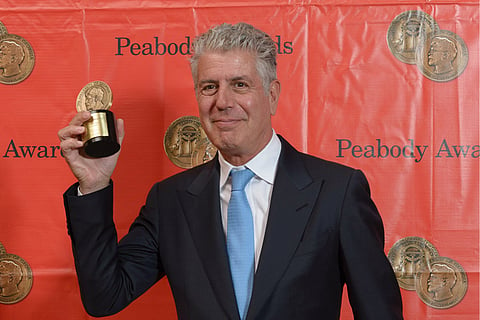

News of Anthony Bourdain, the celebrity chef and television host’s death came in on Friday, leaving me and millions of others in shock and sadness. Bourdain, for me, was more just a television show host, more than just a guy being paid to live this charmed life where he just travelled around the world to eat. He was a man who taught me that it was entirely possible to rip open my cocooned existence without any fear of the world that waited outside.
I was born into an upper middle-class, upper caste family, to educated and loving parents who schooled me in one of the city’s best, that was naturally, full of equally privileged kids. We revelled in our similarities – our castes (“Iyer ah Iyengar ah?” was an everyday question), our weekend Saravana Bhavan outings, our sambhar sadhams and fried potatoes. In the rare occasion that a classmate brought anything resembling meat for lunch, it wasn’t uncommon to see the vegetarians run out of the class while pinching their noses. I still remember a classmate asking me (rhetorically, of course), how it was possible for people to eat meat.
I didn’t know how. I didn’t know how, until 2005, when the Travel and Living Channel, and consequently, Anthony Bourdain became a part of my living room. I watched Bourdain traipse through the world, eating bugs, exotic sea creatures and every other kind of meat imaginable, in his inimitable style. Every episode I watched was a personal revelation about all that food was and all that food could be.
What I loved about Bourdain, apart from his brilliant story-telling skills and impossibly cool swagger, was the honesty with which he approached food and his eagerness to understand the ways different cultures worked. Despite him doing three different shows – A Cook’s Tour, No Reservations and Parts Unknown (he was filming an episode for Parts Unknown at the time of his death), he remained the same – curious and empathetic.
There is an episode of A Cook’s Tour in Bangkok, where he tucks into a plate of Frog Skin chips, which, for most television producers and hosts, would have been the perfect excuse to create a montage of shockingly disgusting visuals. Instead, the chips are presented without fuss, with an upfront explanation about how people in South-East Asia, especially the poorer parts of South-East Asia managed to discover unconventional sources of protein that were inexpensive and capable of sustaining them. There is no dramatic background music, no excruciating close-ups of live frogs and no fetishizing. In another episode (from No Reservations) where he travels to India, he eats in a street-side establishment in Kochi – a modest but busy place. Bourdain talks about how the food and plating isn’t pretty, but there is no commentary about hygiene or any snide comments about food poisoning. No matter where he is in the world, he’s just a guy trying out, and enjoying food.
I’d like to think of Bourdain as this really cool, older cousin – the kind that completely blows your mind by explaining the ways of the world to you. Man is an omnivore, get over it! Your food isn’t better than their food, it’s just different food! Squids are food, bugs are food, pigs are food – anything and everything is food if you want to eat it! And most importantly, just because you haven’t or don’t want to eat something, doesn’t mean it’s not food!
Thank you, Tony, for teaching me about food, teaching me about culture and teaching me to respect whatever is on another person’s plate. The world is poorer without you. Rest in Peace.
(Views expressed are author's own)